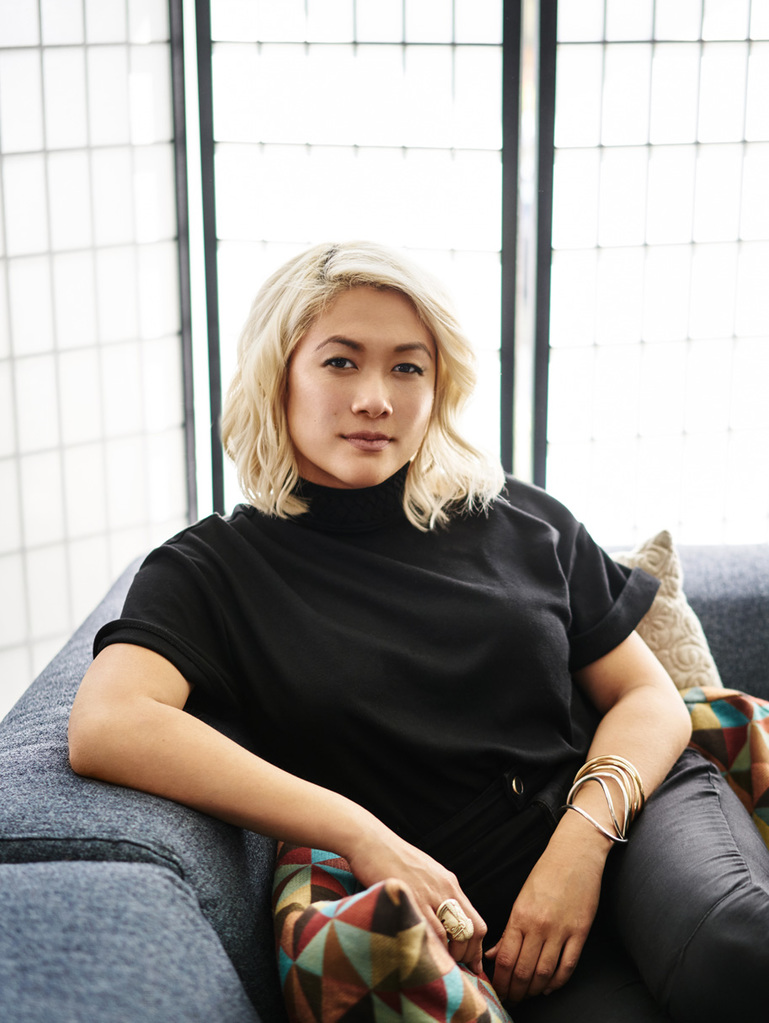The day after the inauguration of President Donald Trump, millions of women flooded streets across America carrying signs of empowerment and protest against the bigotry and discrimination they had heard carried through the airwaves during the election.
In Washington, D.C., where one of the largest gatherings assembled, one group of 25 singing voices rose above the others as they, pussyhats atop their heads, crescendoed in a chorus: “I can’t keep quiet, for anyone, anymore.” At the center of the a capella was Connie Lim, also known as Milck, the musician and creator behind the song that would eventually become known as the unofficial anthem of the Women’s March movement.
Lim had been a struggling artist in her home city of Los Angeles for about a decade when “Quiet” went viral via a tweeted video from the march. In the span of weeks, she and the #ICan’tKeepQuiet movement had garnered national attention, even performing on “Full Frontal With Samantha Bee.” In May, Lim signed with Atlantic Records.
The story behind “Quiet” is one of personal pain. Lim, who is a survivor of sexual assault, co-wrote the song with Adrian Gonzalez in 2015 after waking from a dream. In it, she lived out an alternate version of the abuse she suffered, in which she said no to keeping quiet in response to, “It will be over soon.” What she ended up writing was an expression of “defiance, annoyance, hope and determination.”
“It was a bundle of feelings I would feel whenever someone would stereotype me or make assumptions about me or want me to act in a certain way as a woman, as an Asian American woman,” she said. “I had had enough.”
Writing it was her own form of therapy. “I didn’t think it would do what it did in the world,” Lim said. Initially, she thought the song was “a little too gentle for the world.” “But the world changes. I think it served a purpose,” she said.
Messages from around the world have flooded her inbox, from other assault survivors, those who’ve found inspiration in her voice and those who say she helped them feel less alone. Lim said reading those messages make her feel like some of society’s inequalities are being leveled out.
Leading up to the march, she had been facing the challenge of embracing herself as she was, and being repeatedly told by music executives that the country was not ready for Asian American artists.
“I’ve always had people tell me to go back to Hong Kong and sing there, you will be accepted there,” she said. “Why do I have to leave to feel accepted?”
Rejecting that idea, Lim used the hurt she felt as fuel for rebellion.
At some point, she realized that “simply being me is standing up against inequality.” As a young girl, she’d felt invisible and vulnerable, not seeing artists who looked like her in media. “My goal is to erase that sense of invisibility for future generations,” she said.
Her advocacy through music has continued. Earlier this year, she released a new song with a theme of resistance, “This Is Not The End,” in response to #MeToo.
It has taken Lim a lifetime to learn how to speak up. Lim grew up being told she was too shy to become a singer. “Bravery is like a muscle,” she said. “Try to flex your bravery in little ways. Eventually, it will become so strong that you will start saying things you never thought you would be able to say in front of others.”
This article is a part of a series of portraits and stories, in celebration of Asian Pacific American Heritage Month, on API women who use their perspectives and voices to speak up and impact their communities. Read more here.






